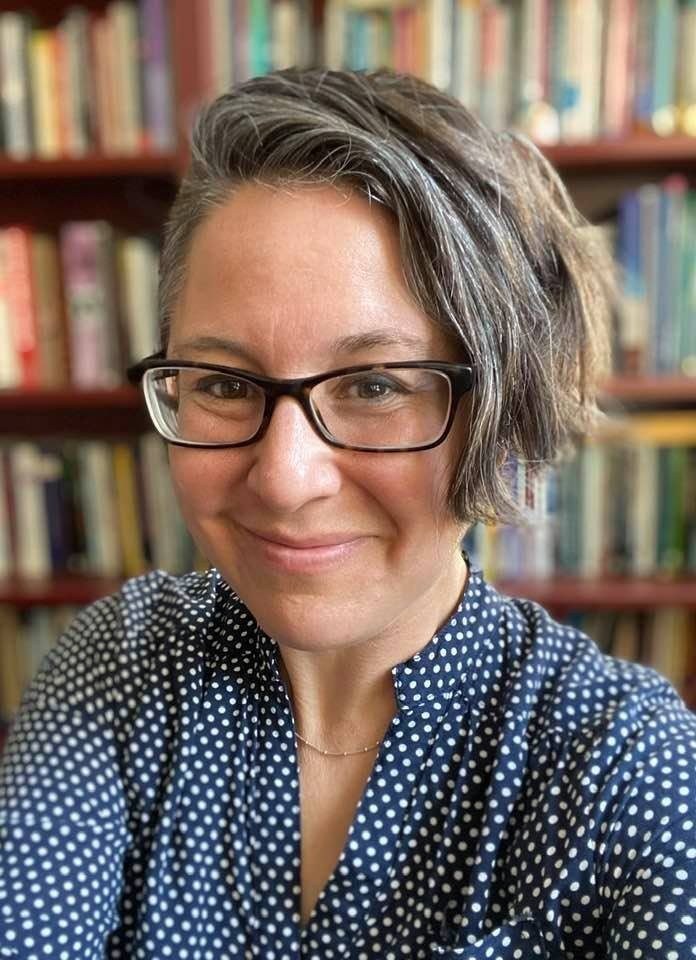Posted: March 21, 2022
For Dr. Kim Niewolny of Virginia Tech’s Center for Food Systems and Community Transformation, socially and spatially just agricultural systems are born through processes of crossing geographical “divides.”

Dr. Kim Niewolny, Virginia Tech’s Center for Food Systems and Community Transformation
For Dr. Kim Niewolny of Virginia Tech’s Center for Food Systems and Community Transformation, socially and spatially just agricultural systems are born through processes of crossing geographical “divides.” In order for these systems to function effectively, they require both support and inputs from diverse networks of individuals and groups. During a conversation with Dr. Niewolny, she gave several examples of how she and her colleagues have been working to build capacity and bridge rural and urban areas with the ultimate goal of supporting more just and resilient communities.
Given the numerous ways of thinking about resilience, Niewolny commented, “I don't really think it's equilibrium...It's like biomimicry. You want to have a rich, diverse set of relationships, and that, in my mind, is a resilient system.”
In her view, resiliency is not an end to be accomplished but rather an attribute to continuously work towards. In other words, the process of becoming resilient is just as important – if not more important – as the state of being resilient. Niewolny does not think about communities as in a state of being “deficient” or “un-resilient.” Instead, they are working towards sustainability which acknowledges “socio, economic, political, and ecological relationships” rather than thinking about resilience as an individual attribute. By asking about the “strategies communities have developed to be ‘resilient,’” this framing links resilience with processes of community development, rather than an endpoint.
Extension’s role in building community resilience, or in building community capacity for becoming more resilient, has to do with how Extension considers itself. Is Extension a service of technical transfer? Is it a system for the two-way translation of research knowledge and community knowledge? Is it a democracy-building system that contests knowledge hierarchies? It might be all of these at different points in time. Niewolny emphasizes, however, that there is “a lot of potential for Extension to be uplifting so much more. […] There are pockets of people who are...being a little bit more deliberate with the...wicked problems that we’re trying to handle. It’s not just technical transfer information.”
Especially in the urban context, recognizing the complexity of issues facing communities is essential not only to finding workable solutions, but also to building community capacity to implement those solutions. Operating in this space of being a change agent within community can be confronting for some, according to Niewolny. She suggested that, to challenge knowledge hierarchies and the idea that educators or agents are the (only) sources of expertise, Extension might even do away with position titles. That idea has received “huge pushback, because there is...comfort in knowing content.” Doing work that is place-based, however, and that builds community resilience across a spectrum of challenge areas, or with respect to so-called wicked problems, requires a rethinking of how the work is done:
“Helping people to reimagine how they do their work is actually helping them to reimagine who they are as Extension professionals. That’s the epistemic space in Extension that requires a lot of investment and a lot of time. […] And I do think it’s very challenging for people to sit in that epistemic space.”
Sitting in “that epistemic space” is not just an academic or philosophical exercise, but also shows up in how programming is structured. In Virginia, like most states, race and geography are intimately intertwined. Niewolny describes it as a “pretty specific racial divide... especially (in the) south side of Virginia (where we) see more of our Black farmers” in rural spaces. The demographics of Virginia’s cities depends on the community - “a little bit more of a patchwork” - which encourages extension professionals at Virgina Tech to think critically about how programming is structured “so it does speak to different audiences and their different geographic spaces.”
Niewolny described part of her work with extension as “uplifting” urban agriculture, including regenerative and closed system agriculture, that is already happening in urban communities rather than “implementing” programs that emerge from extension. This example of how extension can challenge power dynamics and knowledge politics might seem subtle, but is a crucial part of building community capacity, empowering local community knowledge, and – ultimately – supporting socially just processes of resilience building.
If you would like to receive The Urban Resilience Report in your inbox, please click here to join the listserv.

